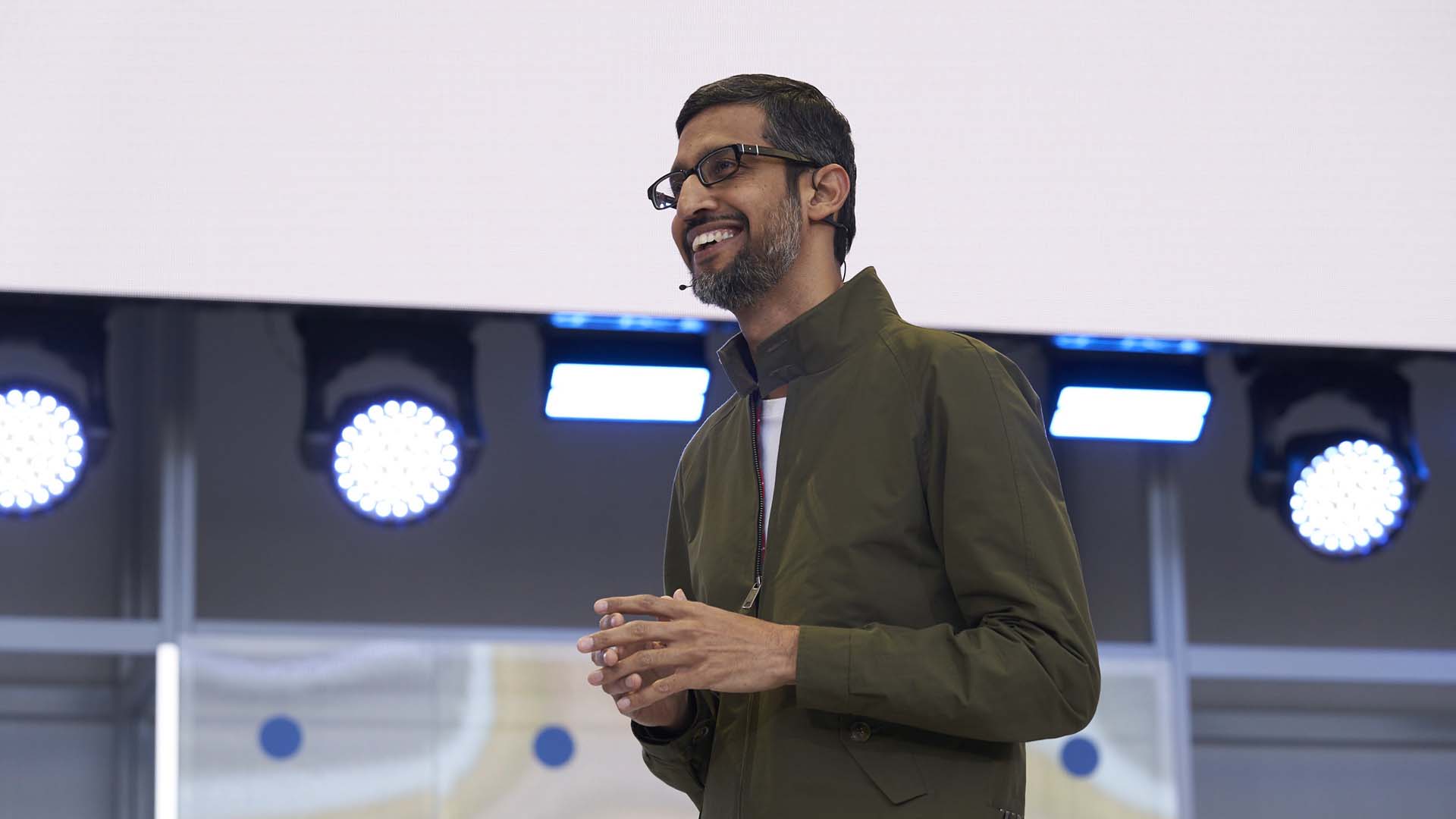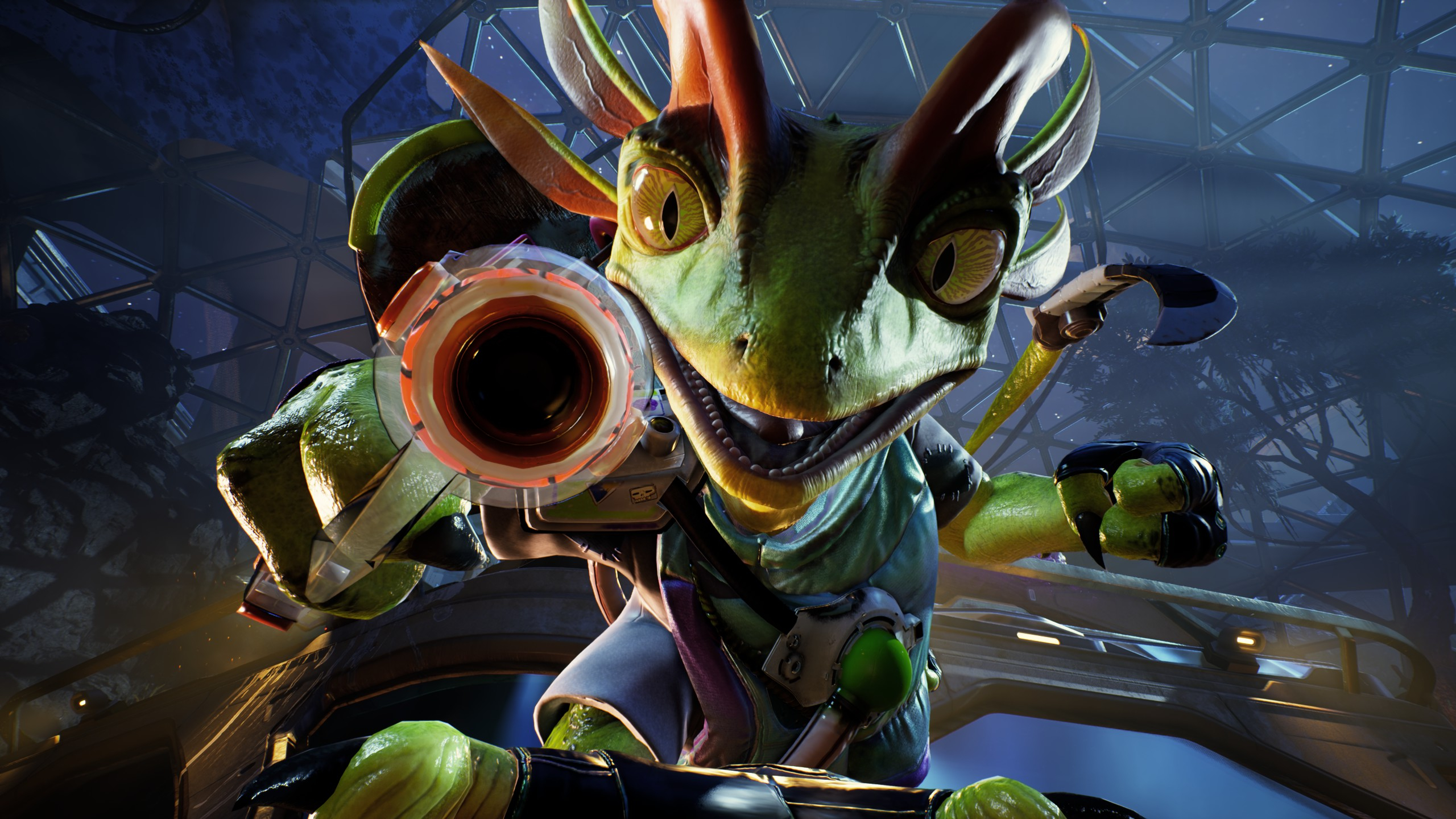Google CEO's warning about the AI bubble bursting: 'No company is going to be immune, including us'
"No one company should own a technology as powerful as AI"

Keep up to date with the most important stories and the best deals, as picked by the PC Gamer team.
You are now subscribed
Your newsletter sign-up was successful
Want to add more newsletters?

Every Friday
GamesRadar+
Your weekly update on everything you could ever want to know about the games you already love, games we know you're going to love in the near future, and tales from the communities that surround them.

Every Thursday
GTA 6 O'clock
Our special GTA 6 newsletter, with breaking news, insider info, and rumor analysis from the award-winning GTA 6 O'clock experts.

Every Friday
Knowledge
From the creators of Edge: A weekly videogame industry newsletter with analysis from expert writers, guidance from professionals, and insight into what's on the horizon.

Every Thursday
The Setup
Hardware nerds unite, sign up to our free tech newsletter for a weekly digest of the hottest new tech, the latest gadgets on the test bench, and much more.

Every Wednesday
Switch 2 Spotlight
Sign up to our new Switch 2 newsletter, where we bring you the latest talking points on Nintendo's new console each week, bring you up to date on the news, and recommend what games to play.

Every Saturday
The Watchlist
Subscribe for a weekly digest of the movie and TV news that matters, direct to your inbox. From first-look trailers, interviews, reviews and explainers, we've got you covered.

Once a month
SFX
Get sneak previews, exclusive competitions and details of special events each month!
With one of the world's top bankers, ex-Intel CEO Pat Gelsinger, and even OpenAI chief Sam Altman suggesting AI is in a bubble, Google's CEO has chimed in with thoughts of his own. When asked how the AI bubble bursting would affect Google Pichai tells the BBC the company would survive, but also that "no company is going to be immune, including us."
In an interview with the British news organisation Google's Sundar Pichai talks at length about this technology as we enter "clearly the era of AI." Pichai has been the CEO of Google for over a decade now, and as such, he is one of the most influential voices in favour of the rise of generative AI tools.
Google, alongside all its competitors, is committing a lot of time, money, and effort into the growth of AI. Pichai says, "AI is dramatically increasing demand for energy", adding that "maybe four years ago, Google was spending less than 30 billion dollars per year. This year, that number is going to be over 90 billion dollars."
With exponential growth comes the potential of that growth stopping suddenly, and the industries built around it collapsing in response. Nvidia has become a company worth over $5 trillion, and that's partially due to the rise of AI and the costs of capable hardware.
This knock-on effect has pumped up the worth of major AI companies, such as OpenAI, and would explain the AI commitments made by Google, Microsoft, Meta, and more.
NEW & EXCLUSIVEGoogle CEO Sundar Pichai speaks to me on BBC News about the unprecedented AI boom- “an extraordinary moment, even by Silicon Valley’s standards”- boom both rational but there were “elements of irrationality” as there were in the dotcom bubble 25 years ago……November 18, 2025
"No one company should own a technology as powerful as AI," says Pichai. "We can look back at the internet right now. There was clearly a lot of excess investment, but none of us would question whether the internet was profound or did it drive a lot of impacts. It fundamentally changed how we work digitally, as a society. I expect AI to be the same."
But even successful industry bubbles can pop. For instance, the infamous dot-com bubble of the late '90s could be attributed to a broad trend of overvaluations of many internet companies and market saturation (among other things), but that doesn't mean that the invention of the internet isn't influential on the world around us today.
Keep up to date with the most important stories and the best deals, as picked by the PC Gamer team.
Pichai also talks about the role of generative AI tools in the wider world going forward. 'Agentic' is the current buzzword around AI, and the notion of one AI that can autonomously complete assignments with little oversight is certainly intriguing. "Down the line, that means there are moments it can help you make a decision… ' should I invest in this stock?'... or 'my doctor is recommending a treatment. How should I think about the pros and cons of that treatment?"
But Pichai doesn't envision AI as a one-stop solution for all queries. He urges people not to "blindly trust" AI as it is currently prone to errors. AI is known to have hallucinations, where it effectively makes things up. If you ask a chatbot a question it doesn't have an answer for, or it has scraped its answer from inaccurate sources, it can feed you misinformation unintentionally. As we trust these tools more, the effects of that misinformation can become more pronounced.
"This is why people also use Google search, and we have other products that are more grounded in providing accurate information."
When asked, "Could an AI agent do your job at some point?", Pichai says, "I think what a CEO does is maybe one of the easier things for an AI to do one day." So, at least if AI does take all our jobs, we'll all be job hunting together. Or not, I suppose, if Pichai's estimated net worth is accurate.

The best PC gaming gear 2025
All our current recommendations











James is a more recent PC gaming convert, often admiring graphics cards, cases, and motherboards from afar. It was not until 2019, after just finishing a degree in law and media, that they decided to throw out the last few years of education, build their PC, and start writing about gaming instead. In that time, he has covered the latest doodads, contraptions, and gismos, and loved every second of it. Hey, it’s better than writing case briefs.
You must confirm your public display name before commenting
Please logout and then login again, you will then be prompted to enter your display name.

